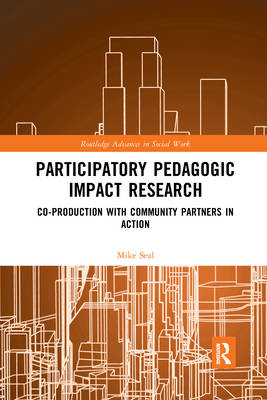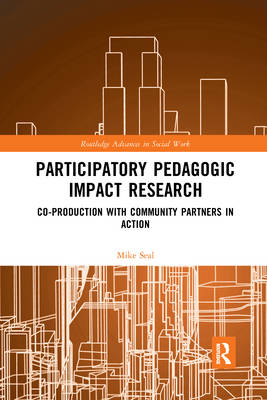
- Retrait gratuit dans votre magasin Club
- 7.000.000 titres dans notre catalogue
- Payer en toute sécurité
- Toujours un magasin près de chez vous
- Retrait gratuit dans votre magasin Club
- 7.000.0000 titres dans notre catalogue
- Payer en toute sécurité
- Toujours un magasin près de chez vous
Description
Involvement of community partners in the structure and design of services is largely accepted in principle, but its practice is heavily contested. This book argues that the co-production of research is one of the best ways to involve community partners. As well as having intrinsic value in and of itself, research embeds a culture of learning, co-production and of valuing research within organizations. It also creates a mechanism for developing evidence for, monitoring and evaluating subsequent ideas and initiatives that arise from other co-production initiatives.
The book makes a case for research to be a synthesis of participatory research, critical pedagogy, peer research and community organizing. It develops a model called Participatory Pedagogic Impact Research (PPIR). Participatory research is often criticized for not having the impact it promises. PPIR ensures that the issues chosen, and the recommendations developed, serve the mutual self-interest of stakeholders, are realistic and realizable. At the same time this approach pushes the balance of power towards the oppressed using methods of dissemination that hold decision makers to account and create real change. PPIR also develops a robust method for creatively identifying issues, methods and analytic frameworks. Its third section details case studies across Europe and the United States of PPIR in action with professional researchers' and community partners' reflections on these experiences.
This book gives a unique articulation of what makes for genuinely critical reflective spaces, something underdeveloped in the literature. It should be considered essential reading for both participatory research academics and those involved in health and social care services in the planning, commissioning and delivery of services.
Spécifications
Parties prenantes
- Auteur(s) :
- Editeur:
Contenu
- Nombre de pages :
- 260
- Langue:
- Anglais
- Collection :
Caractéristiques
- EAN:
- 9780367590000
- Date de parution :
- 30-06-20
- Format:
- Livre broché
- Format numérique:
- Trade paperback (VS)
- Dimensions :
- 155 mm x 236 mm
- Poids :
- 358 g

Les avis
Nous publions uniquement les avis qui respectent les conditions requises. Consultez nos conditions pour les avis.






